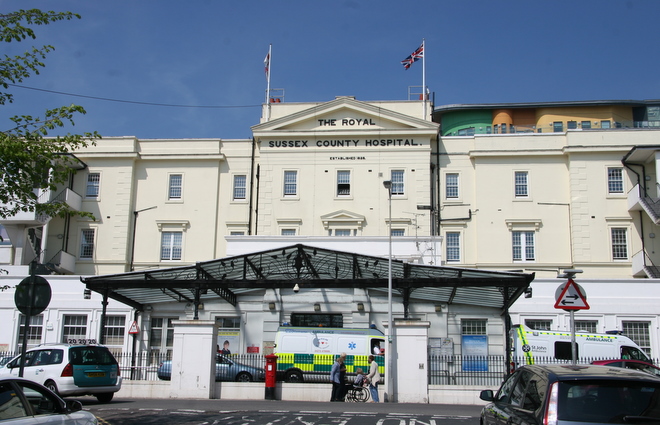Brexit and the high cost of living in Brighton are making it harder for health chiefs to recruit enough nurses.
The day after the British government wrote to the European Union to start the formal process of leaving the EU – known as Brexit – a senior nurse spoke about the impact among staff.
Helen O’Dell, the interim chief nurse at Brighton and Sussex University Hospitals, told the trust board today (Thursday 30 March): “Our European nurses are asking me what’s going on. They are anxious.”
The uncertainty is appears to be affecting staff retention rates, although Helen Weatherill, the human resources director at the trust, which run the Royal Sussex County Hospital, said: “Our overseas staff are more stable than our UK staff.”
Helen O’Dell agreed: “The international nurses stay for a long time.”
In a report to the board she said that last month seven wards had a “fill rate” of below 80 per cent. The fill rate measures the number of staff hours planned per ward that were filled.
She said: “Local, national and international recruitment continues as a high priority to enable substantive positions to be filled reducing the need for bank and agency staff.
“Our vacancy for registered nurses continues to increase and is now 219 wte (whole-time equivalents) – the highest since February 2016.

“The business case for recruiting International nurses has been agreed and recruitment has started along with a plan for local recruitment.”
The board was told that newly qualified nurses often left after a year or so with the trust.
Many move for a promotion, earning more to work somewhere with cheaper housing, public transport and parking.
She added that vacancies had increased again in the past month. But there was active recruitment going on in the UK, with the trust attending job fairs and holding open days to recruit health care assistants.
The trust would also be recruiting abroad, in particular, in the Philippines. Filipino staff had proved loyal, with many of them staying with the trust for many years, the board was told.
It remained to be seen whether Brexit would affect the trust’s ability to recruit staff from other EU countries during a period of uncertainty.
Chief operating officer Rab McEwan said that there were 30,000 patients on the waiting list to be seen.
The trust’s ability to fill posts and retain staff, including those European staff worried about whether they will have to leave their job and return home, would therefore affect patients.
The need to recruit overseas was underlined with Helen O’Dell adding in her report: “The universities are reporting a reduction of applicants following the removal of the bursary for student nurses/midwives. The first group of students without a bursary are expected to start in September 2017.”






